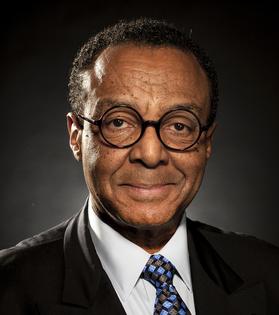J.D. Vance Seeks to Build Bridges, Maybe Even Among Republicans
As a high school student, bestselling “Hillbilly Elegy” author J.D. Vance recalled, “People talked about Clarence as someone to look up to.”
“Not when I was there,” I interrupted.
And we laughed like two people who went to the same high school, although in vastly different decades.
So did the host of our discussion, Bob Woodson, a former civil rights activist and founding head of the 40-year-old Woodson Center, based in Washington.
After I told Woodson, a longtime source of great column ideas, how much “Hillbilly Elegy” shows that class and culture increasingly matter more than race in determining one’s socioeconomic success in life, he invited young J.D. and me to talk about it in a special video podcast, “Desegregate Poverty.”
I was delighted and fortunately so was Vance. It really is I who looks up to him, I noted, returning his compliment. After all, he’s the one who turned his humble working-class upbringing in Kentucky and our shared hometown of Middletown, Ohio, into a cultural and literary sensation and Netflix movie.
He also gained unexpected national stardom as the “Trump anger translator” (among other nicknames) after the 2016 election, as journalists in particular turned to his account from Flyover Country for clues about the working-class folks who energized Donald Trump’s surprising campaign.
Significantly, the book doesn’t even mention Trump’s name. But Vance’s account of how family decline, childhood trauma, opioid abuse and the loss of dignity and purpose after the elimination of manufacturing jobs gave three-dimensional life to Trump’s “forgotten man” images and “American carnage” rhetoric, minus his inflammatory language about immigrants, “fake news” and other scapegoats.
Vance is more conservative than I am, but so, it seems to me, is most of our hometown, which only adds to the bitter frustration of those who feel the system has left them, as Vance puts it, on the “losing side of globalization.”
Both of us credit our homespun Midwestern upbringing for our shared desire for civility and common ground, along with the tough love he so eloquently describes in elders like his “mamaw,” who urged him not to be a “loser.”
...continued
(c) 2021 CLARENCE PAGE DISTRIBUTED BY TRIBUNE MEDIA SERVICES, INC.










